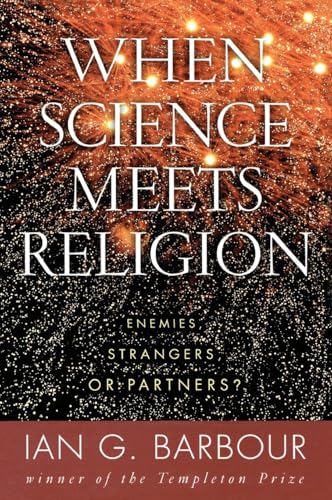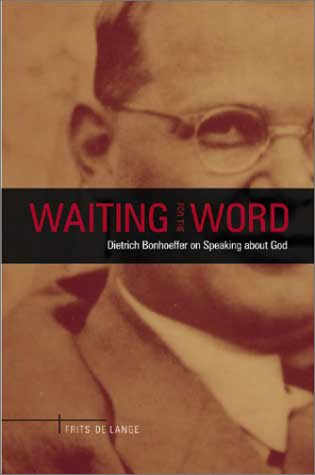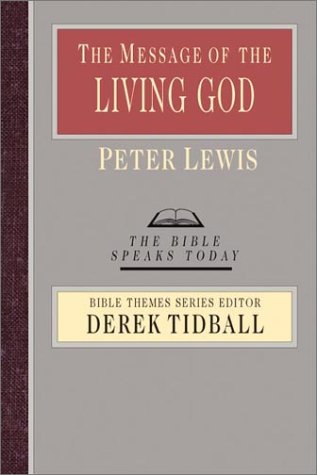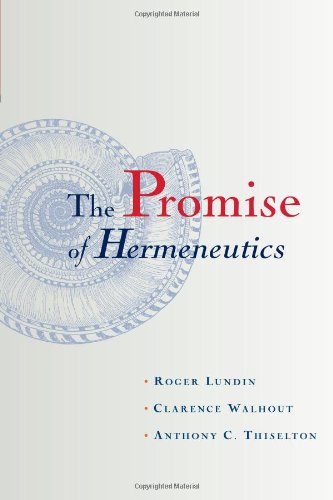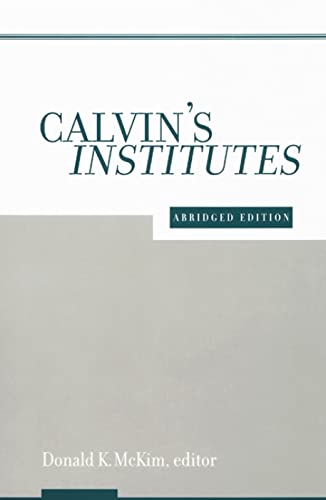Volume 27 - Issue 1
What has Boxing to do with Jerusalem?
By Carl TruemanThe world of boxing has been one of my passions from childhood onwards and I guess, over the years, I have acquired a fairly decent knowledge of its history and its personalities, along with a modest library of classic boxing writing. Of course, in these days of rampant political correctness, I have found myself frequently challenged about my interest by those somewhat less enamoured of the sport. In such circumstances, I usually reply, with at least part of my tongue in my cheek, that boxing is nothing more than sport at its most honest—after all, the purpose of all sport is to defeat the opposition in an emphatic and decisive manner, and boxing simply does this in a more direct and open way than one finds in, say golf. Cut away the superficial politeness and protocols of golf, and one has the same basic struggle for physical and mental superiority which one finds in boxing.
While many today will be familiar with the names of Ali and Tyson as men who, for good or for ill, have cast long shadows over the heavyweight division, those with a deeper knowledge of boxing history will know that neither boasts the most impressive record in the division. It is a perennial fault in many boxers that they retire too late and too frequently, and Ali was no exception. He fought on too long and took too many beatings. Tyson, meanwhile, is a deeply flawed and troubled personality who simply did not have the self-discipline to be truly great. In fact, in the history of boxing only one man retired undefeated as heavyweight champion: Rocky Marciano. Indeed, when Marciano quit the ring in 1956, his professional record was 49 bouts, 49 wins, 43 within the distance. Nobody has ever come close to the score sheet generated by the man they called ‘The Rock’.
Of course, I am too young to have seen ‘The Rock’ in action but I have seen him on video and his technique was, to put it mildly, awesome. Lacking the charisma of an Ali or the precision of a Hagler, he was rather something almost primeval: overwhelming, devastating, and totally destructive. Graceful he wasn’t; but fearsomely effective he most certainly was. He entered the ring to win, and was prepared to do whatever he had to do to achieve that result.
What has all this got to do with theology, you ask? Well, it seems to me that theological controversy, at least in the way most of us conduct it, is like boxing in that it is often more about winning by beating up the opposition than about anything else; and that it is in fact less honest and reputable than boxing because we hide our brutality under a veneer of virtuous rhetoric, and justify the human damage it causes by specious appeals to the moral high ground of God’s honour.
What, I hear you say, has Trueman gone soft? Is he arguing that we should abandon theological controversy, sit down in a meadow somewhere and make daisy chains together? By no means! I am in fact more convinced than ever that theological controversy is essential to the well-being of the church. The willingness of Christian brothers and sisters in Christ to defend the faith and to articulate clear and strong positions on doctrine is crucial. If history teaches us anything, it teaches us the need for vigilance and the need to combat heresy and heterodoxy whenever and wherever we come across it. Do not, therefore, misread me as saying that controversy is, in itself, wrong or unnecessary. What I am saying is that we need to make sure that the controversies in which we are engaged are conducted in a manner likely to achieve the desired goal; and, furthermore, that the desired goal is a biblical one.
What is the desired goal of theological controversy? Well, surely it is twofold: that of glorifying the name of Christ; and that of persuading those with whom we disagree that there is a better way, that their theology is less than biblical and that they need to subject their thinking to the searching criticism of the Word of God. Controversy therefore should be part of a mutual quest for the establishment and articulation of the truth, a quest in which we listen to what our opponents have to say and then seek to respond to them. Our responses should put down error in a firm and decisive manner and yet not compromise our love for them as brethren or our desire to see them—and, of course, ourselves—come to a fuller knowledge of the truth. The aim of theological conflict among Christians is not to win, not to beat one’s opponent mercilessly into a bloodied wreck, but to establish the nature of truth and to convince as many as possible of the truth. This requires a personal openness on our part which is driven by a love and concern for those with whom we disagree, not a sneering contempt for anyone who disagrees with us.
This should immediately shape the way we approach controversy. First, we should always strive to place the most charitable interpretation on the views and the motives of our opponents. Attacking straw men achieves little more than a few cheap laughs for those who agree with us anyway; and knocking out a first-round patsy does not make one a great champion. If we wish to refute a position, we have to deal with the position accurately and not in some distorted or false manner. Second, we should deal with them in a manner that is courteous. Being rude or abusive is a great temptation in the heat of controversy, but it serves merely to muddy the waters and to increase resistance to our position rather than opening the way for constructive discussion. Third, and following on from the second, we should make sure that, as much as we possibly can, we go for the ideas, not the personalities involved. I’m old fashioned enough to believe that the truth is the truth even when spoken from the mouth of Balaam’s ass, and simply deriding his ass as an ass doesn’t really tell me much about the quality of the ideas. In summary, we should deal with our opponents as we expect them to deal with us. We should also acknowledge our common status as sinners saved merely by the grace of God. This is the ultimate point of reference for preserving our own modesty and understanding our relationship both to God as source of all truth and our fellow creatures as joint seekers after truth.
Now, as I said above, I am not saying this because I think controversy and hard-talking is not important. In fact, I am saying it for precisely the opposite reason. Too many have been put off controversy and taking a firm stand for the truth precisely because too many controversies have been conducted in vicious, personal, and vindictive fashions—and that is dangerous. It means that too many theological arguments now never happen and too many heresies now enter the theological world by default because many decent Christians have an understandable revulsion for the kind of vitriol that marks so many controversial encounters.
It is sad, but there are those who live only for theological controversy. They may use the pious rhetoric of God’s kingdom but it is very significant that they can only ever write in a polemical fashion. They do this simply because they have absolutely nothing positive to contribute. Their only claim to fame is the manner in which they conduct ruthless witch-hunts against individuals and institutions. Sadly, the advent of vanity presses and crank internet sites, lacking the usual editorial/accountability structures which real scholars and church leaders take for granted, has made this type of mediocrity much more common. Such tragic characters are often perversely parasitic on the very things they despise: take away the person or object of scorn, and their lives would become empty shells because they have no positive contribution of their own to make. Asked recently what I thought of such people as theologians, my answer was that I simply did not think of them as theologians at all: being a theologian, after all, implies some larger, positive goal and some level of love and integrity which they seem to lack. For these people, theology is not ultimately about glorifying God: it is about winning, about beating their chosen opponent, regardless of the human cost. Take their ‘enemies’ away, and they are as ridiculous and as tragic as a deluded pug throwing wild punches at a non-existent opponent. Kierkegaard had a wonderful phrase for them: ‘substantial mediocrities’—those who have themselves never achieved anything and only feel good about themselves when they are undermining those who have actually achieved something. We all need to pray that, when we stand for the truth, we do it for God’s glory and out of love for his church, not out of self-importance and any tendency towards ‘substantial mediocrity’.
We must not, however, allow this theological yob culture and the personalised attacks launched by cranks and crazies to blind us to the need for open, frank discussion and for principled defence of the gospel. We must repudiate their hatred and their hang-ups, yet not throw out the baby with the bathwater and play into the hands of those who would have us see all truth as negotiable and indifferent. The Bible makes it quite clear that the truth is important and we must take an uncompromising stand on this; but the Bible also makes quite clear that love is equally important and we must take an uncompromising stand on this too. Many of us are good at one or the other: very few of us seem to be able to achieve an uncompromising attitude on both counts; and yet nothing less is demanded by the Lord from those who claim to be his disciples, to love his truth, and to love his church.
Physician, heal thyself! I hear some readers cry. It is true, and I confess it: I have found an uncompromising attitude to truth to be easier to manage over the years than an uncompromising attitude to love. Every unsanctified bone in my body wants to take Rocky Marciano as my theological role model. I want to beat my theological opponents to a pulp, to win every time I enter the theological ring, to do so within the distance rather than on points, and I want to retire as undefeated champ. I want to be remembered as an awesome destroyer of the opposition. I want to be feared by friend and foe alike. But all that is wrong, unbelievably, terribly wrong—as wrong as the attitude of those who would exalt love to the exclusion of truth and all doctrinal claims to the level of matters indifferent rather than risk any hint of controversy. Both approaches bring nothing but disgrace to the name of Christ and are things of which we all need daily to repent and seek God’s strength to overcome. Boxing, much as I dearly love it as a sport, should have nothing to do with Jerusalem, even by analogy. It is simply not God’s way. Marciano was without doubt the greatest heavyweight fighter in the history of the ring but he is not an appropriate role model in the church. In fact, there is another historical character who also had the nickname ‘The Rock’ whose advice is far more pertinent in the context of standing for the truth:
Finally, all of you, live in harmony with one another; be sympathetic, love as brothers, be compassionate and humble. Do not repay evil with evil or insult with insult, but with blessing, because to this you were called so that you may inherit a blessing … Always be prepared to give an answer to everyone who asks you to give the reason for the hope you have. But do this with gentleness and respect, keeping a clear conscience, so that those who speak maliciously against your good behaviour in Christ may be ashamed of their slander.
1 Peter 3:8–9 and 15–16
Carl Trueman
Carl Trueman is Professor of Biblical and Religious Studies at Grove City College in Grove City, Pennsylvania.


